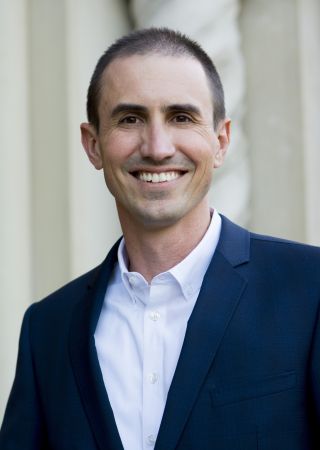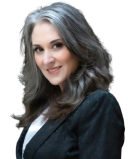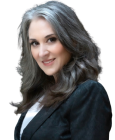Education
Yoel Inbar and the Credibility Crisis in Psychology
Making the case for viewpoint diversity became an obstacle for one professor.
Posted July 10, 2023 Reviewed by Hara Estroff Marano
Key points
- For years, warnings have been sounded about the lack of viewpoint diversity in academia.
- Yoel Inbar, who supports viewpoint diversity, was denied a job at UCLA after students petitioned against him.
- In academia, being conservative—or a liberal concerned about viewpoint diversity—can be morally polluting.
- Moral pollution occurs by proximity to something taboo.
In 2011, social psychologist Jonathan Haidt addressed colleagues at the Society for Personality and Social Psychology (SPSP). They like to think of themselves as “supertolerant free thinkers” who “celebrate diversity,” he said. But the profession’s credibility is at risk “when we deprive ourselves of critics, of people who are as committed to science as we are, but who ask different questions, and make different background assumptions.”
“We have sacred values other than truth,” he warned. “We have taboos that constrain our thinking; we have almost no moral/political diversity; and we have created a hostile climate for [those] who don’t share those sacred values.” The lack of political and ideological diversity among social psychologists, he posited, (at the time estimated at roughly 14 liberals to 1 conservative, versus a national ratio of roughly 1 liberal per 1.5 conservatives) could be the result of discrimination, a hostile climate, or both. And without the institutionalized disconfirmation provided by viewpoint diversity, the quality of the work would suffer.
Psychologists Yoel Inbar and Joris Lammers weren’t so sure. So they surveyed members of the SPSP, asking how they identified politically, whether they believed there was a hostile climate toward conservative thinkers, and how willing they themselves were to discriminate against conservative scholars. Respondents were presented with four hypothetical situations: would they award a grant to a conservative scholar, accept a conservative’s paper for publication, invite a “quite conservative” scholar to participate in a symposium, and would they choose a liberal over the conservative candidate for a position in their department.
In 2012, Inbar and Lammers presented their findings at a conference: The more liberal the respondent, they found, the less likely he or she was to think there was a hostile climate for conservatives—and the more likely he or she was to actively discriminate against conservatives. Of the four scenarios, liberal professors expressed the greatest willingness to discriminate in order to prevent conservatives from joining their departments.
Respondents’ comments illuminated the thinking behind their willingness to discriminate in hiring. For example:
“Certainly, it doesn't make a lot of sense to hire someone… [with] beliefs and opinions that were contrary to the culture of the department.”
“I don't consider my critical attitude toward conservative political beliefs to be an inappropriate political bias, because in many cases those beliefs are predicated on demonstrably wrong propositions… and I don't think there's anything wrong with taking an aggressive partisan stance…”

Fast-forward to 2023, when Inbar interviewed for a position at UCLA.
Generally speaking, after an interview, a candidate at his level would be forwarded to the faculty for a vote by a three-person committee. Many on the faculty wanted Inbar to join the department. But graduate students circulated a petition against hiring him.
The petition referenced two episodes of Inbar’s podcast, Two Psychologists, Four Beers. In one, when discussing the SPSP taking a position against Georgia’s decision to outlaw all abortions past six weeks, Inbar, who is pro-choice, said, “It is not the place of SPSP to take a stand on this kind of issue” because “when we align ourselves with a political side or faction it’s bad for our science.”
This view is consistent with University of Chicago’s Kalven Report, which insists that a scholarly institution “cannot insist that all of its members favor a given view of social policy.” The necessity for neutrality “arises out of respect for free inquiry and the obligation to cherish a diversity of viewpoints.”
The petitioning students disagreed. “Most concerning to us as students is Dr. Inbar’s opposition to institutions endorsing positions on sociopolitical issues he has deemed ‘contentious’ or ‘controversial.’”
Further, they complained about Inbar’s “position against the use of diversity statements as a tool in the hiring process” in a podcast episode (from 2018) in which he mused, “it is not clear what good they do...” In that episode, Inbar also noted the lack of clarity that DEI statements “lead to better outcomes for underrepresented groups.” Citing research indicating that such statements make no difference, he added, “I’m skeptical of this stuff” because it seems like something “some administrator thought would be a good idea to showcase the progressive values of the organization rather than anything that’s going to lead to better outcomes” for members of marginalized groups. (The student petition did not reference his concern for better outcomes.)
Finally, the students took issue with Inbar’s view that “the left fails to acknowledge that these [DEI] statements ‘[signal] an allegiance to a certain set of beliefs.’” They objected to his concern that mandating DEI statements could require applicants to “demonstrate a commitment to left-wing values” and might “signal to people who don’t share those values, ‘this is not a place for you.’” In expressing concerns about excluding or marginalizing conservative scholars, Inbar, though not a conservative, was rendered morally polluted.
Moral pollution is a phenomenon whereby an idea, person, or object is considered metaphorically contaminated by virtue of its physical or conceptual proximity to a taboo, including someone or something considered morally abhorrent. This is the mechanism of what’s now called adjacency. If a person’s thinking is “adjacent” to morally polluted ideas or people, that person is rendered contaminated. Inbar was sent an unambiguous signal: This is not a place for you. The committee did not even allow the faculty to vote.
Inbar’s case is not entirely unique. But there’s a particular irony. In his own required DEI statement, he wrote, “I am strongly committed to diversity, equity, and inclusion in teaching and mentoring, and I continuously work to foster equitable and inclusive environments in my classes and in my lab culture…” Teaching at the very diverse University of Toronto, he said, “requires considering how [students’] different backgrounds and life experiences affect how they learn…” He even gave specific examples of his “inclusive mentorship” and concluded by reiterating his commitment “to continuing to mentor and support students from underrepresented groups in my lab...”
Turns out that at least some DEI statements really don’t make a difference.
“We are very forgiving and accommodating in a way that [conservatives] tend not to be.”
SPSP survey comment by a self-described liberal psychologist




